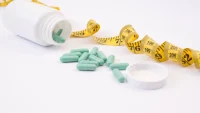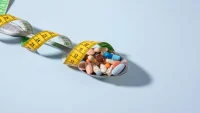Selecting the appropriate sports nutritional supplement is a critical factor that can greatly influence an athlete’s performance and recovery. Given the diversity of athletic goals and individual physiological needs, it becomes imperative to understand the specific benefits and potential risks associated with various supplements.
High-quality, well-researched products can offer substantial advantages, yet the abundance of options can also lead to confusion. As we explore the nuances of this topic, it is essential to reflect on how tailored supplementation can transform an athlete’s approach to training and competition, ultimately raising the question of what truly constitutes the best choice.
Understanding Nutritional Needs
Many athletes may not fully comprehend their unique nutritional needs, which can greatly impact their performance and recovery. Ideal nutrition is essential for athletes, as it fuels their training, enhances performance, and facilitates recovery post-exercise. The body requires a balanced intake of macronutrients—carbohydrates, proteins, and fats—as well as micronutrients such as vitamins and minerals, to support various physiological functions.
For instance, carbohydrates serve as the primary energy source during high-intensity workouts, while proteins are critical for muscle repair and growth. Additionally, adequate hydration is fundamental to maintain performance levels and prevent fatigue. Understanding these specific nutritional requirements enables athletes to tailor their diets effectively, ensuring they obtain the necessary nutrients to achieve their athletic goals and promote overall health.
Types of Sports Supplements
Maneuvering the landscape of sports supplements requires a clear understanding of the various types available and their specific applications. Sports supplements can be broadly categorized into protein powders, amino acids, creatine, pre-workout formulas, and recovery products. Protein powders, often containing enzymes like prohydrolase, enhance protein absorption and support muscle recovery by providing essential nourishment.
Amino acids play an essential role in muscle synthesis, while creatine improves strength and energy during high-intensity activities. Pre-workout formulas typically contain stimulants and performance enhancers to boost energy levels, whereas recovery products focus on replenishing lost nutrients post-exercise. Understanding these categories is important for athletes to select supplements that align with their specific fitness goals and nutritional needs.
Evaluating Product Quality
When selecting sports nutritional supplements, understanding product quality is vital, as it directly impacts the effectiveness and safety of these products. High-quality supplements often contain well-researched ingredients, such as CarnoSyn, a patented form of beta-alanine known for its role in enhancing athletic performance. Evaluating quality should include evaluating third-party testing, which guarantees that the product contains the stated ingredients without harmful contaminants.
Additionally, reputable brands like noolvl prioritize transparency in their formulations, providing consumers with detailed information regarding sourcing and manufacturing processes. This vigilance helps athletes make informed choices, ultimately leading to improved performance and reduced risk of adverse effects. In conclusion, prioritizing product quality is essential for maximizing the benefits of sports nutritional supplements.
Tailoring Supplements to Goals
Understanding product quality lays the groundwork for effectively tailoring sports nutritional supplements to individual athletic goals. Different athletes have varying needs based on their specific objectives, such as muscle gain, endurance, or recovery. For instance, branched-chain amino acids (BCAAs) like Instaminos can be particularly beneficial for those looking to enhance muscle recovery and growth, as they provide essential amino acids that support protein synthesis.
Conversely, endurance athletes may prioritize supplements rich in carbohydrates and electrolytes to sustain energy levels during prolonged activity. By aligning nutritional supplements with personal goals, athletes can optimize their performance and recovery strategies. Understanding the distinct roles of various supplements guarantees that athletes make informed decisions that directly contribute to their unique training outcomes.
Consulting With Professionals
Consulting with professionals, such as sports nutritionists or dietitians, is an essential step for athletes seeking to optimize their supplement regimen. These experts can provide tailored advice based on individual health conditions, performance goals, and dietary needs. For instance, they can recommend supplements that incorporate ingredients like astragin, which enhances nutrient absorption, thereby maximizing the efficacy of the supplements taken.
Additionally, professionals can evaluate the safety and quality of various products, ensuring that athletes avoid harmful substances that could compromise their health or performance. Regular consultations can also help monitor progress and make necessary adjustments, ensuring that the athlete’s nutritional strategy remains effective and aligned with their evolving goals. Investing in professional guidance is vital for achieving sustainable athletic success.
Conclusion
To summarize, selecting appropriate sports nutritional supplements is crucial for optimizing athletic performance and recovery. Individual goals necessitate a tailored approach, emphasizing the importance of understanding specific nutritional needs and evaluating product quality. By consulting with professionals, athletes can guarantee that their supplement choices align with their objectives, ultimately enhancing effectiveness and safety. A well-informed approach to supplementation not only supports performance enhancement but also contributes to long-term athletic success and well-being.

Vivan Henderson, a professional photographer born in Texas. Photography is his passion. He was fond of nature in his childhood. So he took his passion as a profession. He is basically nature photographer but also take other type of photo. He completed graduation in computer science from Texas Tech University. He lives in Houston with his wife and two children’s.





